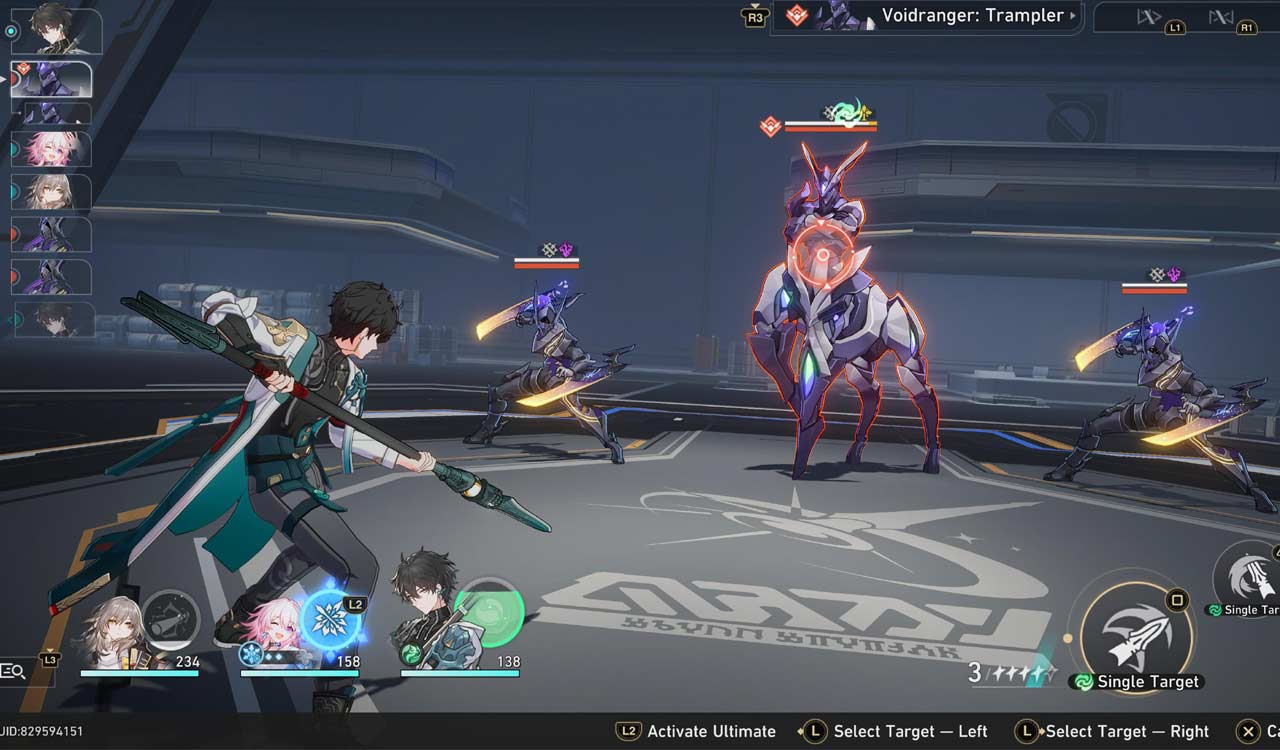When Genshin Impact debuted in September 2020, it not only introduced “gacha” mechanics to a global audience but also highlighted how little distinction existed between AAA titles and F2P games in terms of world-building, visual quality, and delivering engaging experiences.
Published Date – 04:50 PM, Sun – 3 December 23

Hyderabad: When Genshin Impact debuted in September 2020, it not only introduced “gacha” mechanics to a global audience but also highlighted how little distinction existed between AAA titles and F2P games in terms of world-building, visual quality, and delivering engaging experiences.
Almost three years later, with no apparent successor to Genshin, the quest for a game blurring the F2P and traditional gaming boundaries seems to conclude with Honkai: Star Rail. A game that not only boasts stunning visuals but also presents an expansive and intricately detailed world.
This belated review of Honkai comes nearly six months after its release, coinciding with the game’s recent achievement of winning the prestigious “Best Mobile Game of the Year” on both Apple and Google’s platforms, but such is the challenge of reviewing modern F2P games. You review them not for what they are at launch but for what they can be in the future. In the six months since its launch, Honkai has continued to expand as a game but also in terms of availability as it has now become playable on Windows and the PS5.
Consequently, I have experienced the game on my Pixel 7 Pro, my iPad Pro, and my PS5 and have seamlessly cross-played with the ability to cross save as my progress has traversed two continents with ease and uniformity.
Honkai’s strength lies in its detailed game mechanics and its turn-based combat. It combines typing-based combat akin to Pokémon with intricate skill and ability trees found in modern RPGs. Each character possesses a distinctive ultimate ability reminiscent of games like DoTA, creating a visually stunning experience that intertwines elements of anime and gaming culture.
Notably, characters like Himeko unleash attacks rivaling those seen in iconic series like Naruto’s Madara (e.g., planetary devastation). For players willing to invest time in refining their team, continue searching for balance, and exploring, Honkai promises a rewarding and joyful experience.
However, despite its strengths, Honkai has a critical flaw in its combat system. While initially delightful, it’s let down by repetitive enemies and the game’s encouragement of speeding up battles or automating them. This automation detracts from the intricately detailed mechanics, leaving players with little to do besides exploration if they choose to automate combat and focus solely on leveling up characters. It feels like a disservice to a game with such intricate mechanics, to reduce the entire experience to little more than a sequence that generates random damage numbers. This aspect significantly detracts from what could have otherwise been a truly fantastic experience.
A must play for everything else, make sure to try it before I compile the list for best mobile games in two weeks’ time.
Sneak Peek:
Title: Honkai: Star Rail
Developer: Cognosphere
Game Type: Single and multi-player Action RPG with Gacha turn based combat mechanics
Platforms: PlayStation 5, Android, iOS, Microsoft Windows
Price: Free to Play with ads and in-app purchases
Verdict (all scores out of 10):
Innovative Gameplay: 8.5
Game Handling & Quality: 9
Value for Time: 9
Potential Progression without in-game purchases: 8
Overall: 8.62
What Stands Out:
* The world design and visuals are outstanding; it’s the level of polish you’d expect from a AAA game. The addition of a metaverse/simulated universe adds a captivating layer to the gaming experience.
* The combat and detailed typing is wonderfully done, it seems like Pokémon but is also more complex.
Fails to impress:
* The sound effects become repetitive after a while, especially the hollow metal clang that occurs when walking on metal platforms consistently throughout the game.
* There is little that distinguishes the game from an idle gaming experience. As it progresses, encountering the same kind of enemies makes standard battles feel like a monotonous task.




